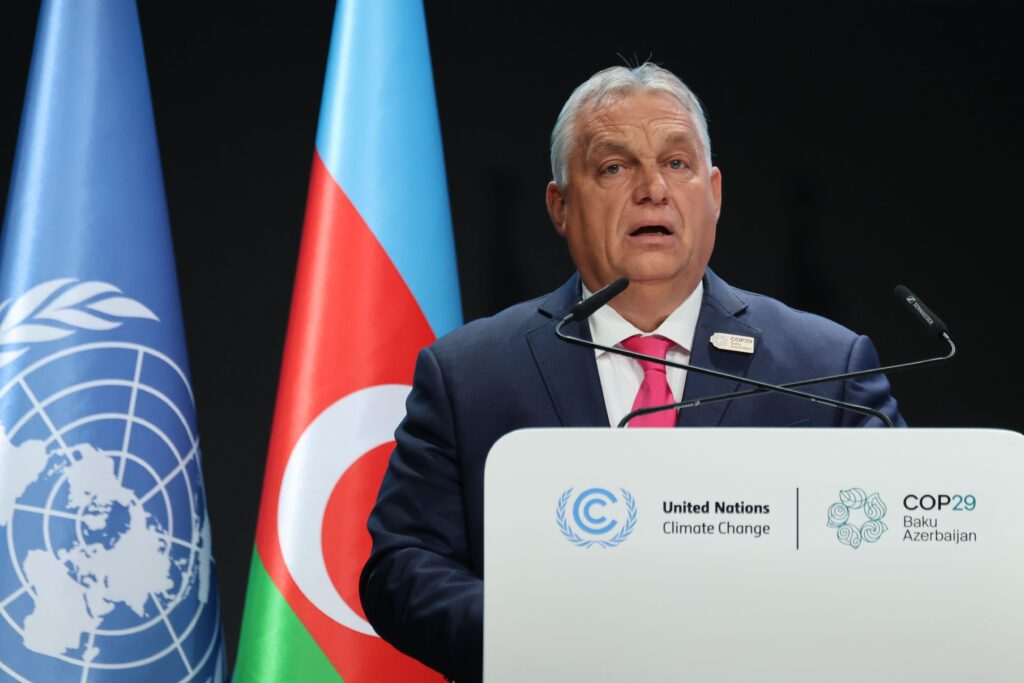A growing number of oil companies in the past year have announced targets to achieve “net-zero emissions” by mid-century, seemingly signaling a monumental shift in the history of the oil business towards low-carbon solutions. But a new report argues that not only is the oil industry unlikely to be a leader on carbon reductions, but the sudden flurry of net-zero pledges is instead a cynical effort to bolster corporate images in a calculated attempt to buy time to extract more oil and gas.
The oil industry is structured to prevent real climate action, with business models and oil executives’ compensation packages dependent on amassing oil reserves and growing production. There is little evidence to suggest that fossil fuel companies can be trusted to change their ways, says the new peer-reviewed paper published on April 15 in Energy Research and Social Science.
Pivoting to align a fossil fuel company with what the science says is required to limit global temperature increases to 1.5°C above pre-industrial temperatures means no longer extracting and using fossil fuels – effectively doing away with the oil and gas industry.
“These companies cannot be relied upon to decarbonize at the speed and scale needed to align their emissions with a 1.5°C pathway because the senior executives and directors have annual compensation packages worth millions of dollars,” authors Richard Heede of Climate Accountability Institute and Dario Kenner of University of Sussex said in a statement. “They are unlikely to do this because it could put the company out of business and jeopardize their personal wealth.”

Maintaining Status Quo
Fossil fuel companies have taken a variety of approaches when it comes to climate change.
BP made headlines in 2020 when it announced a major strategy overhaul, pledging to reduce oil and gas production by 40 percent by 2030 and setting an “ambition” to achieve net-zero emissions by 2050. Royal Dutch Shell laid out similar proposals to zero-out emissions by mid-century.
Chevron and ExxonMobil, by comparison, have repeatedly dug in, sticking with an oil and gas energy mix for the foreseeable future. They have offered proposals to cut the “energy intensity” of their operations even as they grow production, potentially allowing for overall emissions to increase on an absolute basis.
Achieving “net-zero” emissions does not mean that the oil companies will eliminate all of their emissions. Typically, these pledges rely on controversial moves to offset their emissions, such as tree-planting or capturing carbon from their operations and burying it underground. Such schemes are rife with questionable carbon counting formulas and create their own problems, such as monoculture tree plantations.
The apparent divergence between the European and American oil majors on climate has become a notable theme in the energy industry, with Shell and BP earning plaudits for taking initial steps at transitioning to cleaner energy sources while ExxonMobil and Chevron are deemed to be “laggards.”
But the distinctions between the seemingly forward-looking European oil majors and their recalcitrant American counterparts is minimal. “Despite superficial differences between BP, Chevron, ExxonMobil, and Shell they share the common goal of avoiding the next level of disruption because this could permanently threaten their existence. They do not want to lose control of their own destinies,” authors Richard Heede and Dario Kenner said in their new paper. By “next level of disruption,” the authors refer to an authentic energy transition that would phase out fossil fuel use.
One of the principal reasons not to trust the oil majors to lead the way on climate is that their top brass is personally invested in the status quo, according to Heede and Kenner. They ranked oil executive compensation, finding that Shell’s CEO Ben van Beurden ranked highest, earning more than $23 million in 2018, with Chevron’s Mike Wirth just behind at $20 million.
Importantly, executive compensation has been tied to metrics such as oil and gas production, the value of reserves on the books, and discovering and replacing reserves – measurements that incentivize a business-as-usual approach to finding and digging up fossil fuels. In addition, executive pay has increasingly trended towards stocks and other market performance measurements rather than direct salary, so CEOs and top executives may not be able to access those riches until some point in the future. If the stock price slips, that puts their compensation at risk.
“Slowing down the low-carbon transition is profitable for the boards of these Carbon Majors,” the authors wrote. “The boards are not prepared to take actions that would support the global shift from fossil fuels because … their personal wealth tied up in their company’s fossil fuel production would be negatively impacted.”
In a statement, BP spokesperson Megan Baldino said: “In February 2020 BP set out an ambition to be a net zero company by 2050 or sooner, and to help the world get to net zero. By 2030, the strategy aims to increase our investment in low carbon energy to $5 billion a year, to have developed 50GW of renewable generating capacity, and to have reduced bp’s upstream oil and gas production by 40%.”
“We believe that our remuneration policy supports the delivery of our strategy that is consistent with the goals of the Paris Agreement,” Baldino added.
Sean Comey, a spokesperson for Chevron, said: “The conclusions of this study are inaccurate and misleading. We believe the future of energy is lower carbon. Chevron is working to help the world achieve that goal.”
At the time of publication, Shell and ExxonMobil did not respond to requests for comment.
New Tactic from Old Playbook
Rather than sincere attempts to transition to a low-carbon future, net-zero pledges by the oil majors are tactics deployed to “burnish their social license to operate,” buying time to produce more oil and gas, the authors argue.
The industry also has a long track record of climate denial aimed at heading off polices to shift the economy away from fossil fuels. Oil industry scientists have known since at least the 1970s about the role their operations play in climate change, and evidence of active climate denial can be dated to at least as early as 1980.
By the 1990s and the early 2000s, oil companies took on a more coordinated campaign of attacking climate science, while simultaneously positioning themselves as leaders, such as BP’s “Beyond Petroleum” branding. The industry then entered a new “early diversification” phase in the 2010s, according to Heede and Kenner, characterized by acknowledging climate change and making extremely modest investments – 1 to 2 percent of overall spending – in renewable energy and other clean technologies.
In the authors’ view, we are still in that phase, with the majors hoping to slam the brakes on the transition before they enter a more disruptive phase that would pose a threat to their existence. Net-zero targets and other claims at pivoting to cleaner energy are part of this effort to avert stringent policy action that would accelerate the energy transition. The corporate spin is aimed at convincing society that government action is not needed since the companies are taking action.
Against that backdrop, the net-zero pledges are more in keeping with their historical tactics of climate denial, rather than some fundamental break with the past. “This is yet another cycle of greenwashing by the big oil companies, and is absolutely predictable,” Robert Brulle, visiting professor of environment and society at Brown University, told DeSmog, commenting on the new paper and the sudden interest from oil companies in net-zero pledges.
“This is clearly fossil fuel propaganda, designed to mislead the public and the elites about the actual practices of these companies,” Brulle said.
Brulle recently published a “primer” on the ecosystem of climate denial, and the ten “key players” obstructing action on climate change, which includes corporate lobbyists, front groups, PR firms, conservative think tanks, and astroturf organizations, among others. The primer was published through the Climate Social Science Network, a global network of scholars headquartered at the Institute at Brown for Environment and Society.
Net-zero pledges are “part of an old playbook to retain social license to operate and retain loyalty and trust,” Heede told DeSmog via email. “None of these companies want government policy and carbon regulations.”
Subscribe to our newsletter
Stay up to date with DeSmog news and alerts







